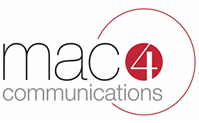Millennials have a huge impact on the workplace. This demographic cohort, born between 1981-1996, accounts for 50% of the workforce now and will grow to nearly 75% by 2025.
My step-daughter’s husband, Drew, is a Millennial. He is a 28-year-old go getter who dreams of owning his own business. He works in sales for a company that does promotional products and print apparel. In terms of generating revenue, Drew is far and away the company’s most valuable employee. He manages large accounts from coast to coast and is connected to his customers 24/7, via his phone and his laptop, whether he is in the office, commuting, or at home.
Lately, Drew’s job has been on shaky ground for one reason: his Baby Boomer boss wants him in the office by 8 a.m. sharp every morning. Drew has trouble managing that (now that he has a child and a wife who leaves the house at 5 a.m. to run her own business) and believes his boss should be more flexible.
Drew’s attitude toward work/life balance is shared by most Millennials. According to people who study such things, work/life balance is more important to Millennials than climbing the corporate ladder, salary increases, and quirky perks like ping pong tables in the break room. One reason is that Millennials don’t want to follow in the footsteps of their Baby Boomer parents. They remember how their moms and dads had little control over how and when they worked and had to wait until retirement to focus on accumulating life experiences missed during their earning years.
For dual-career millennial couples striving to enjoy gratifying careers and a fulfilling personal/family life, striking a satisfying work/life balance can be exasperating. This is especially true when ever-increasing job demands coincide with major life events, such as marrying, home ownership and having children.
The bottom line is, helping Millennials to achieve work/life balance can be a hugely competitive advantage for employers. That means finding creative ways to enable Millennials to have control over how and when they work through flexible policies and programs.
And more thing, don’t use the “M word” when addressing Millennials. Drew says they don’t like it.
Author: Beth Ann Bachmann

